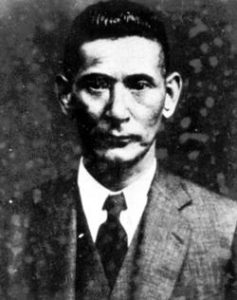The Ideologue and Activist Ōkawa Shūmei (1886-1957)

Ōkawa Shūmei is generally known for his involvement in the Japanese right-wing movement that led to his arrest after the “Incident of May 15” in 1932. Ōkawas activities after his release from prison in 1937 until his indictment as a war criminal in 1946 have not been explored widely.
Ōkawa was a prolific writer who covered diverse topics, including religion, Asianism, the Indian independence movement, colonial history, Japanese history and the “Japanese spirit”. This talk will summarize Ōkawas life, his thinking and his actions against the background of his times. In this context it will also explore the Japanese ideological concept of the “national essence” (kokutai), the tensions between collectivism and statism (kokka shugi) vs. individualism, and political utopianism in the Japanese far right before 1945.